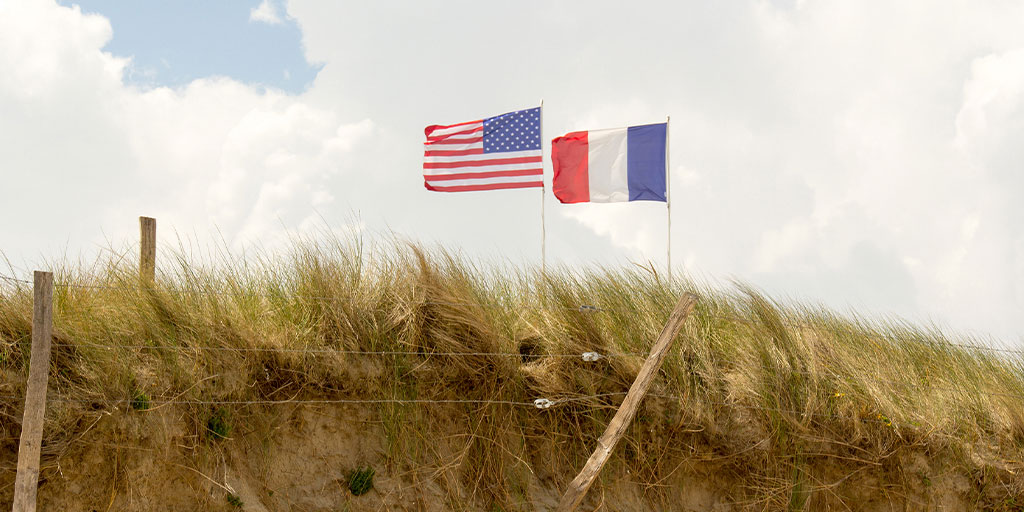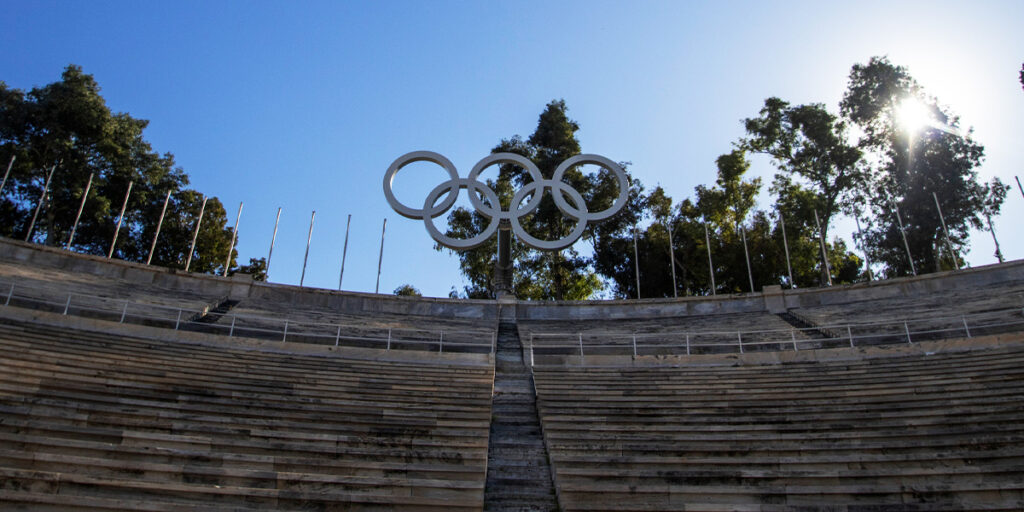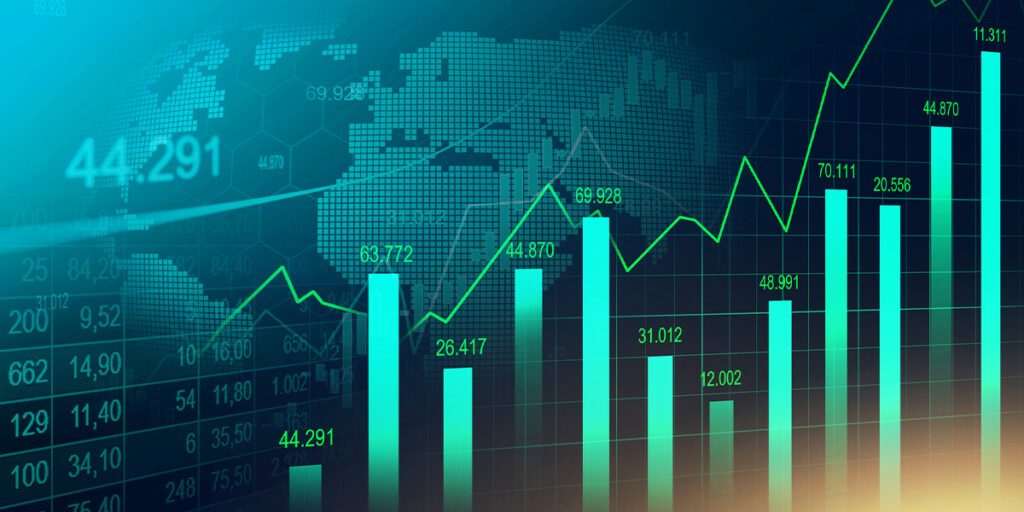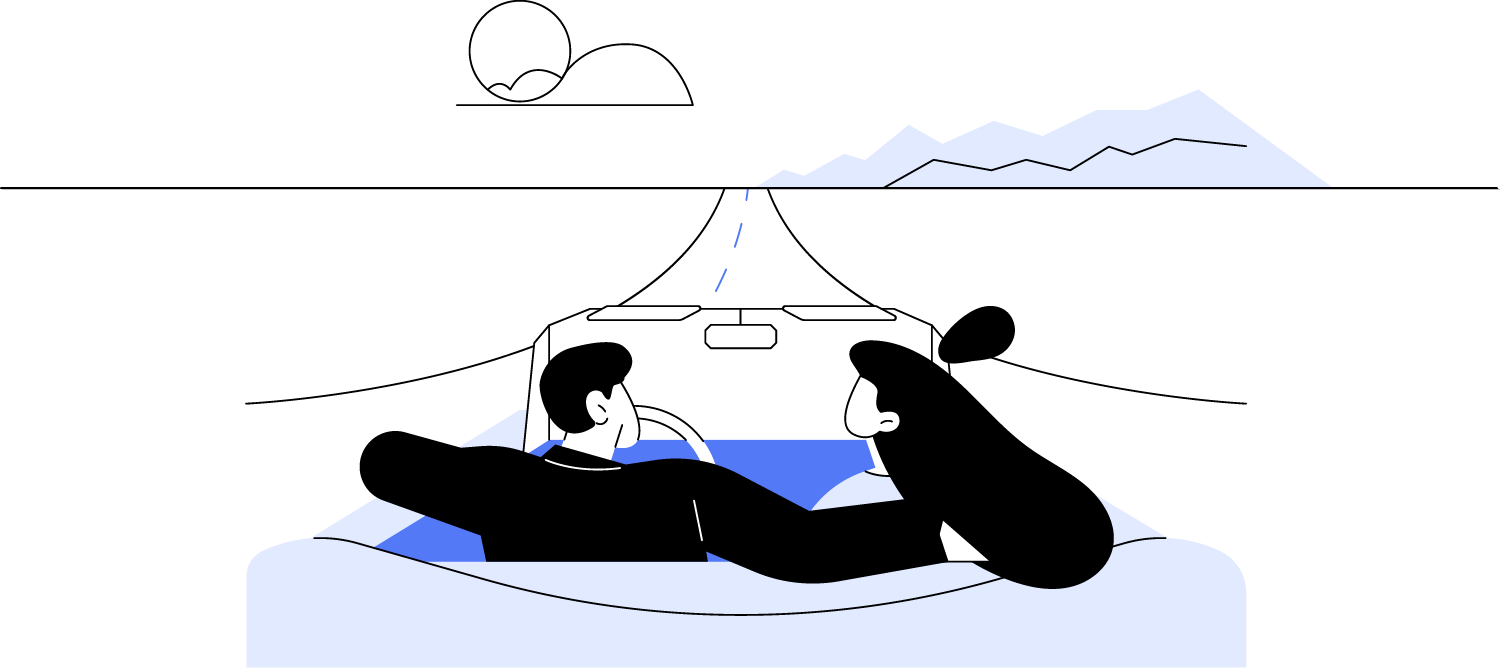This week marked the 75th anniversary of the Allies storming the beaches of Normandy. That day literally changed the course of World War II. The historic day changed our future. It’s known as D-Day. The D simply stands for “day.” The designation was traditionally used for the date of any important military operation or invasion. D-Day stands for itself. It stands for a united front against tyranny. It stands for a strong global alliance. It stands for Americans risking their lives for a common purpose. It ushered in a New World Order, led by the United States. The Marshall Plan was the map for recovery in Europe. America invested heavily to make the world safe for democracy. It charted a path for seven decades of global norms of western ways. We have so much to thank those brave men and women for, who made the ultimate sacrifice.
Many of these global norms have been challenged of late. Global alliances have been tested. There’s a real question about global leadership in the 21st century. Europe’s role has diminished while China’s role continues to increase. There’s a New World Order again, and China and the United States plan to assert themselves as dominant leaders. The rest of the world is watching with great interest and trepidation.
This week I spent some time with Ian Bremmer, the Founder and President of Eurasia Group, which focuses on Geopolitical issues. He’s also a professor at NYU. Bremmer is considered one of the smartest thinkers on global issues. Ian Bremmer refers to today as a “G-Zero World” because there is a power vacuum in place with no clear leader going forward. Bremmer is convinced the old US led world order is over. Even if the US continues its dominant position, which is very likely, it’s going to look very different. The world that your grandparents lived in is quite different from today. The world that your grandkids will live in will be much different too.
Donald Trump gets a lot of credit and criticism for this global unwinding, depending on where people stand. Bremmer believes it’s incorrect, that Trump is a symptom of where the world had already been heading. Brexit came before Trump. Democracies have become increasingly divided around the world. People believe political systems are rigged. Trump said it. Nigel Farage said it. Most people have been flat out tired of the status quo. It’s why Bernie Sanders and Alexandria Ocasio-Cortez have been so effective. It’s why German Chancellor Angela Merkel lost power. People are angry. The level of inequality is highest since the Great Depression. It’s not just in the US. And when you consider political division, the UK and Brazil make Washington actually look functional.
Cable news and social media have become anger outlets. Debate becomes hostile. People generally follow people they already agree with. It seems to bring out the worst in people. The Wall Street Journal did a survey a couple months ago on social media with fascinating results. 55% of the respondents believe social media is full of lies. 82% believe social media is a waste of time. That said, 7 out of 10 still said they are on it daily.
The Internet is no longer about communication. It’s about data, products, artificial intelligence and influence. China controls everything. At least they try to. The world has never seen a growth cycle at scale like China. The Chinese economy has averaged 8% growth for two decades. Emerging China was supposed to be a really good thing for the global economy. It represented a big new market for goods and services. It was expected that China would be a good steward and participant in the American led global economy. Ian Bremmer says: “Wrong.” China’s Belt & Road initiative is its Marshall Plan. China is investing heavily in global infrastructure to secure relationships from Asia to Africa, and even in Latin America. While the US and Europe are turning inward, China is looking outward and putting its money (whether they have it or not) where its vision is. China has a plan. China is in it to win it.
Italy is joining China’s Belt & Road initiative, the first G7 nation to do so. Italy desperately needs investment. It can’t afford to do it alone. All the while the US has been hammering Europeans on not investing enough in NATO. It’s an important fact, but Europe continues to struggle mightily. China is more than willing to lend a helping hand. In comparison to the US, China seemingly provides lower quality infrastructure and spying networks. But they spend money and invest. Africa and South America are embracing this. Traditional American allies, South Korea, Indonesia and Australia are reluctantly being forced to move closer to China.
China wants to dominate the Digital Age. China wants to redirect focus and dependence on Silicon Valley to Shenzen. For the US, the time to hit China is now. Not five years ago. Not five years from now. We are becoming less dependent on China. Chinese labor is no longer the lowest cost. Besides, labor is becoming less necessary with automation. Chinese people still like American stuff. But China wants to run the systems. Artificial Intelligence is a priority. Americans should want Huawei to lose. Google and Amazon have little or no access to China. Apple could be next. Privacy is Apple’s priority. Privacy is not China’s. China was not a technology super power in 2013. President Xi changed everything. Now he is leader for life.
Even when Trump leaves the White House, whether it’s 2020 or 2024, this disruptive transition will continue because, as Ian Bremmer kept emphasizing, it’s not about Trump. While President Trump spent the week in Europe honoring the 75th anniversary of D-Day, President Xi Jinping spent the week in Russia with Vladimir Putin. These two leaders have established a growing relationship over the years. They share a border. They also share a distrust for the United States. This makes for a natural alliance of sorts. The enemy of their enemy, it seems, is their friend. China and Russia also share positions on handling Iran and North Korea. Xi and Putin have both shown concern about a world where trade actions are used as foreign-policy weapons, where pacts controlling nuclear arsenals are ripped up and where populism drives domestic politics. Russia is not strong economically. But they have proven masterful with cyber manipulation and preying on internal divisions. Things have changed over the decades. China used to look up to the Soviet Union seeking assistance. Now, China views itself as sort of a big brother.
Perhaps it is a G-Zero world in which we live. Global instability is a growth industry. One thing is certain, what got us here, won’t get us there. Americans are exhausted from crisis: September 11, the Financial Crisis and decades-long wars in the Middle East help explain it. Europe has weakened economically, politically and as a union at large. In Ian Bremmer’s mind, whatever the next crisis, the likelihood that Americans or our allies rally together has diminished. But he came up with an interesting solution. We need a Digital TPP (Trans Pacific Partnership). It would require western coordination. It would be based on the rule of law, with clear, transparent procedures. Western tech would continue to be the standard for digital systems. Security and privacy would be the backbone. That could slow if not reverse the trend towards China. It’s a very interesting idea. It’s certainly worth exploring.
We need friends. We need allies. Relationships and trust are being challenged in this New World Order. Perhaps we need a Digital D-Day with the same level of alliance and commitment which hit the beaches of Normandy 75 years ago. Winston Churchill allegedly said it best: “You can always count on the Americans to do the right thing, after they’ve exhausted all other alternatives.”
Have a nice weekend. We’ll be back, dark and early on Monday.
Mike







